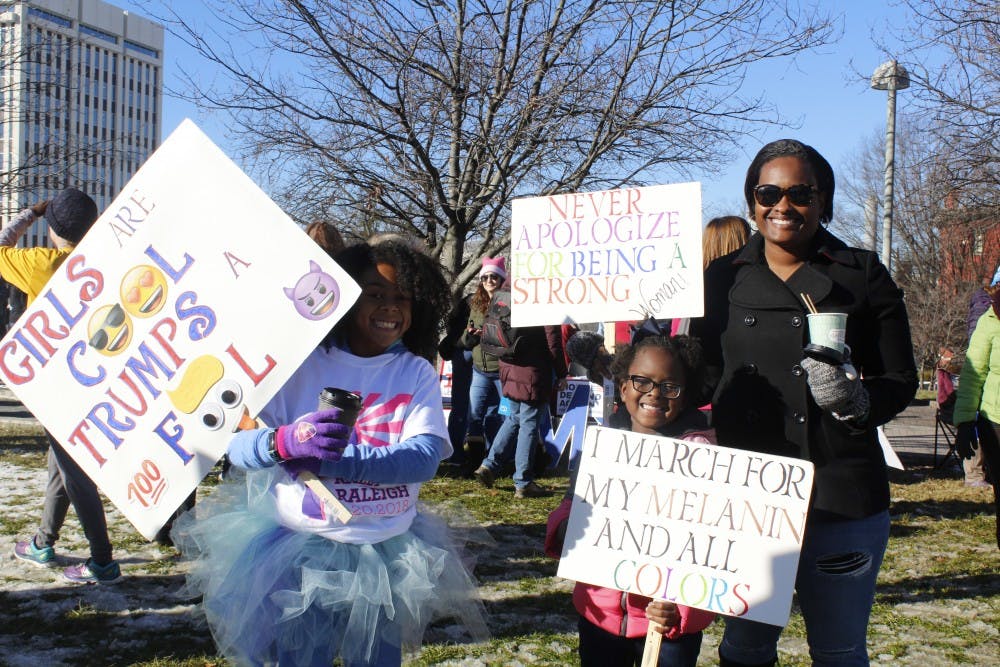Ice still covered the grounds of Halifax Mall, but thousands of women and allies braved the cold to stoke the fires of resistance Saturday morning at the Women’s Rally on Raleigh.
A stream of figures bearing signs, many sporting pink hats, advanced on the streets of downtown Raleigh, steadily streaming into the mall situated behind the North Carolina state legislative building. As the mall quickly filled with demonstrators, they were met with live performances of protest music, poetry and improvisation.
A year to the day after the inauguration of President Donald Trump, the second Women’s March on Raleigh was held to commemorate and continue the work of last year’s Women’s March on Washington and its offshoot protests across the country.
Andrea Azcarate, a professor in the UNC School of Medicine, helped organize both of Raleigh’s Women’s Marches, focusing this year on fundraising for the event. She said there were many reasons she was participating, but the most significant were that there is simply still much to do and the fact that 2018 is an election year, which speakers and demonstrators reiterated throughout the day.
“I think this year everybody is exhausted. We made millions of phone calls; we sent letters and postcards; we marched; we rallied,” she said. “We needed to do this to energize people and tell them ‘We're still here and we’re paying attention. We’re not going anywhere until they go.’”
A resolute sense of resistance permeated the atmosphere and language of the rally. Wake County Commissioner Jessica Holmes, an alumna of UNC and rally speaker, said to the crowd, “We are not simply leading the resistance. We are the resistance.”
This year’s rally was especially charged in the wake of the recent "Me Too" movement, a national movement demanding accountability for sexual assault.
“If the boys don’t know how to keep their hands off our bodies, if the boys don’t know how to treat us fairly, then we will take their toys,” Holmes promised the crowd. “We will take their seats. We will take their offices.”
The main criticism of last year’s Women’s March on Washington was some participants lacked sensitivity toward intersectional issues affecting the female experience, like race and transgender inclusion.




